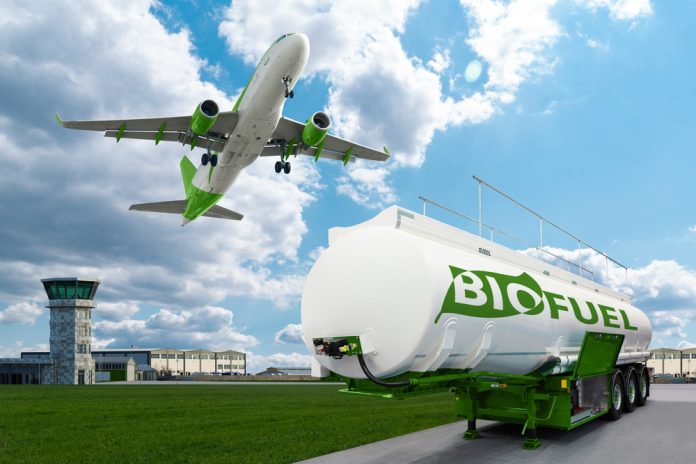The skies are turning greener as the UK has officially enacted its groundbreaking Sustainable Aviation Fuel (SAF) Mandate.
The landmark SAF Mandate is set to revolutionise the aviation industry, driving significant reductions in carbon emissions while fostering innovation and economic growth.
UK Minister for Aviation Mike Kane said: “From this moment on, aviation will be a greener, more sustainable form of travel, and today marks a significant milestone for the UK SAF industry.
“With thousands of jobs supporting the UK SAF industry and flying becoming more popular than ever, the mandate will help deliver our Plan for Change, helping to grow the economy and giving people the freedom to travel in a more sustainable way.”
The role of SAF in green air travel
Sustainable aviation fuel plays a pivotal role in making air travel greener. Traditional jet fuels are a major contributor to global carbon emissions, and SAF offers a viable path to reducing this environmental impact without requiring immediate overhauls to aircraft or airport infrastructure.
By using waste materials and renewable feedstocks, SAF not only reduces emissions but also supports a circular economy. The scalability of SAF production ensures that as technology advances, the aviation industry can transition more seamlessly towards greener skies.
Combined with emerging technologies like electric and hydrogen-powered aircraft, SAF forms a cornerstone of a comprehensive strategy to decarbonise aviation.
SAF Mandate: A cleaner future for aviation
The SAF Mandate requires that at least 2% of all jet fuel used in flights departing from the UK be derived from sustainable sources.
These sources include everyday materials like household waste and used cooking oil. Unlike traditional fossil-based aviation fuels, SAF reduces carbon emissions by an average of 70%, offering a cleaner alternative for air travel.
The mandate’s ambitious targets will see SAF’s share increase to 10% by 2030 and 22% by 2040, equating to an estimated 1.2 million tonnes of SAF supplied annually by the end of the decade. To put this in perspective, that’s enough fuel to power flights circling the globe 3,000 times.
Leading the charge in decarbonisation
With this policy, the UK positions itself as a global leader in sustainable aviation. It is one of the first nations to legislate such a mandate, reinforcing its commitment to achieving net-zero aviation.
The SAF Mandate aligns with the government’s Plan for Change and complements other initiatives aimed at fostering a robust UK SAF industry.
The benefits are twofold: while the mandate will significantly reduce the carbon footprint of aviation, it will also stimulate the UK’s economy.
Thousands of skilled jobs are expected to be created, supporting communities across the country and bolstering the UK’s reputation as a clean energy superpower.
Fuelling confidence for investment
To ensure the successful implementation of the SAF Mandate, the government has pledged to introduce a revenue certainty mechanism for SAF producers.
This mechanism will reduce financial risks and attract investment into the UK’s SAF sector by providing long-term revenue stability.
A consultation on the mechanism is set to launch early this year, marking another step in encouraging the development of SAF production facilities across the country.
The move aims to create a self-sustaining industry that can supply SAF reliably to meet the aviation sector’s growing needs.
Tim Alderslade, CEO of Airlines UK, added: “UK airlines support the SAF Mandate as both a powerful and practical tool for driving down aviation carbon emissions and a clear signal that the industry is fully committed to a net zero future.
“Our priority is ensuring airlines have access to the increasing volumes of SAF required to meet the mandate as global demand soars at the most competitive price possible for consumers.
“The UK mandate is ambitious, and scaling SAF production will mean further work to expand eligible feedstocks, incentives to help cut costs and, critically, ensuring the design of the revenue certainty mechanism enables the UK to increase production of advanced fuels this decade whilst keeping costs as low as possible, critical for achieving mandate compliance and avoiding supplier buy-out.”
New frontiers in aviation
The SAF Mandate is a critical milestone on the UK’s journey toward net-zero aviation. Following the inaugural meeting of the Jet Zero Taskforce, this policy underscores a renewed commitment to cleaner skies and a sustainable future for travel.
By taking these bold steps, the UK is not only setting an example for the world but also ensuring that the aviation industry remains a vital part of a greener global economy. The SAF Mandate isn’t just about reducing emissions; it’s about transforming air travel as we know it.









